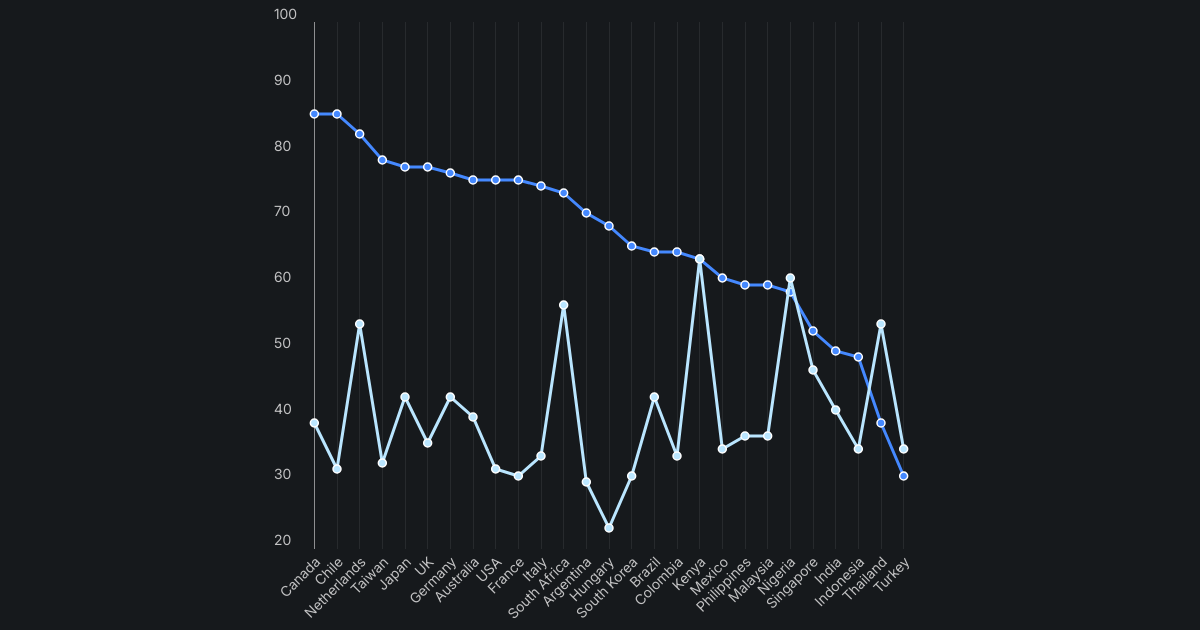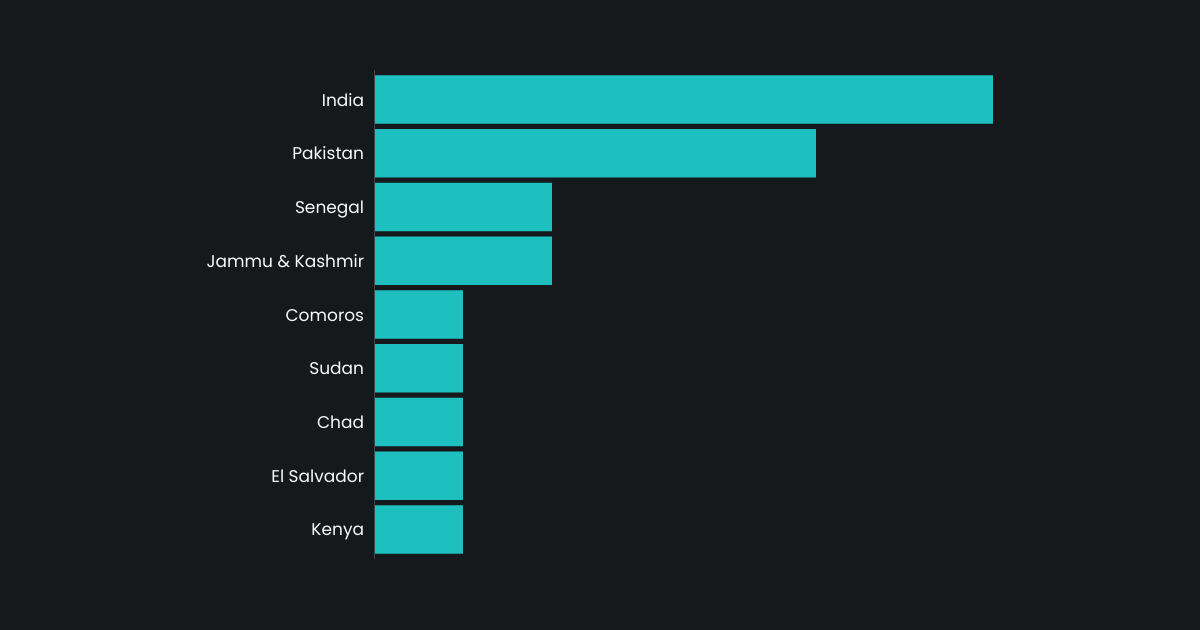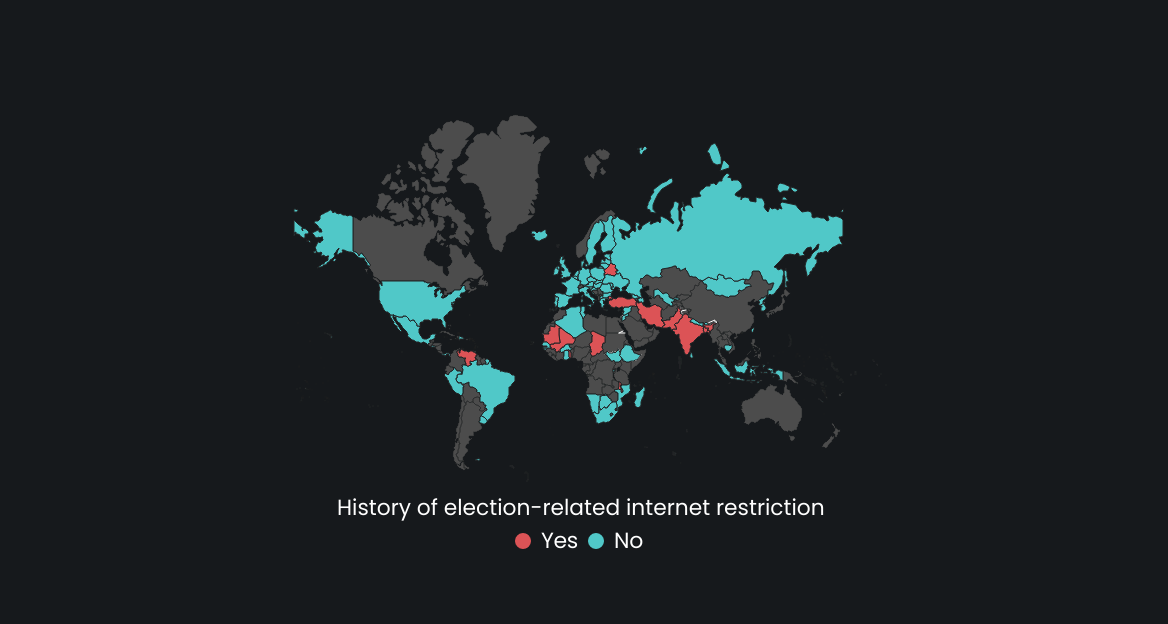Published:Dec 27, 2023
digital democracy|digital freedom
Digital freedom wrapped: here’s what happened in 2023
In terms of digital freedom, 2023 had its ups and downs. From big tech GDPR concerns to global internet shutdowns, Surfshark's Research Hub is here to guide you through different aspects of digital freedom. We'll also cover governmental Google content removal requests and data protection issues in autocratic countries. Let's take a moment and explore it together.
Key insights
- ChatGPT, Threads, and Meta faced scrutiny for potential GDPR violations. OpenAI potentially used personal data without consent and lacked age verification tools for children.¹ Allegedly, Meta's Threads platform collected sensitive information without clear legal justification, possibly sharing it within the Meta group and hindering users from exercising GDPR rights.² Finally, Meta’s decision to apply the so-called “Pay or Okay” approach in the EU raised further debates on legality, raising concerns about user data control and protection.³ Addressing these issues is imperative to safeguard user trust, ensure compliance with data protection regulations, and foster responsible and ethical use of advanced technologies.
- 4.2B people experienced Internet shutdowns in 2023 H1. These figures transcended mere statistics, reflecting the daily experiences of individuals in nations such as China and the UAE, where enduring internet restrictions have become a distressing norm. Globally, the first half of that year witnessed the imposition of 42 new restrictions.⁴
- Government content removal requests to Google surged. In 2023, our examination of Google content removal requests between 2013 and 2022 revealed a global surge — 2022 saw 91,000 requests, which is almost 13 times more than in 2013. Russia took a leading position with 215,000 requests during this period. In contrast, South Korea, ranking second, submitted 8 times fewer requests than Russia did.⁵
- Democracies lead the way in data safety. Our 2023 global Digital Quality of Life Index highlighted that autocratic countries lacked proper data protection laws. Only one autocratic country — Hungary — had an above-average data protection law. Hungary's success could be attributed to its EU membership and GDPR adherence. Conversely, half of democratic nations had data protection levels higher than the global average.⁶
Methodology and sources
This study builds upon synthesized findings from Surfshark's Research Hub conducted in 2023, focusing on the digital democracy category.
References:
¹ Surfshark (2023). Is ChatGPT Violating Your Privacy?;² Surfshark (2023). Potential privacy issues of Threads;³ Surfshark (2023). Meta’s paid subscription — is it GDPR compliant?;⁴ Surfshark (2023). 42 internet restrictions recorded in the first half of 2023;⁵ Surfshark (2023). Governments’ content removal requests to Google;⁶ Surfshark (2023). Digital Quality of Life Index.The team behind this research:About us


